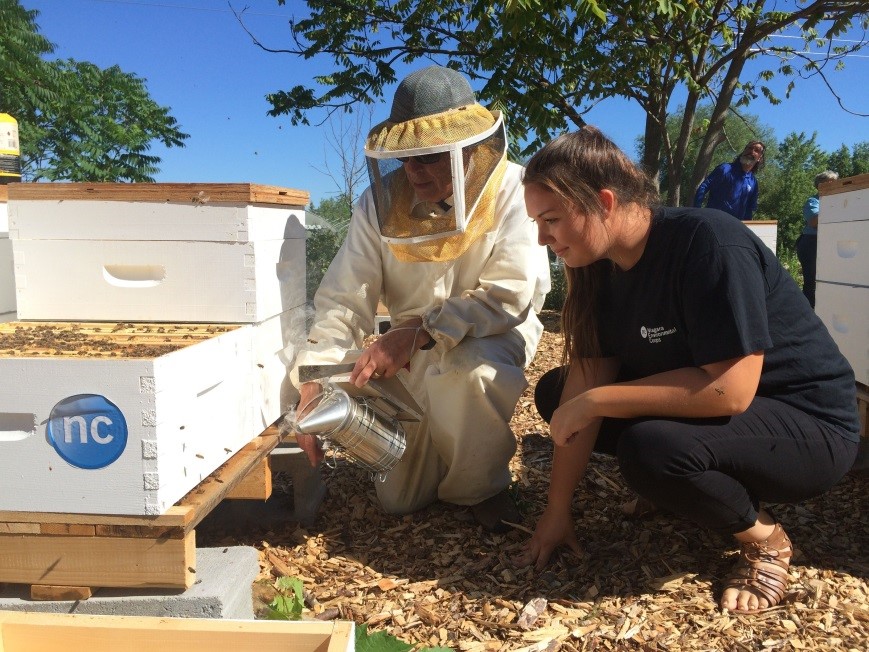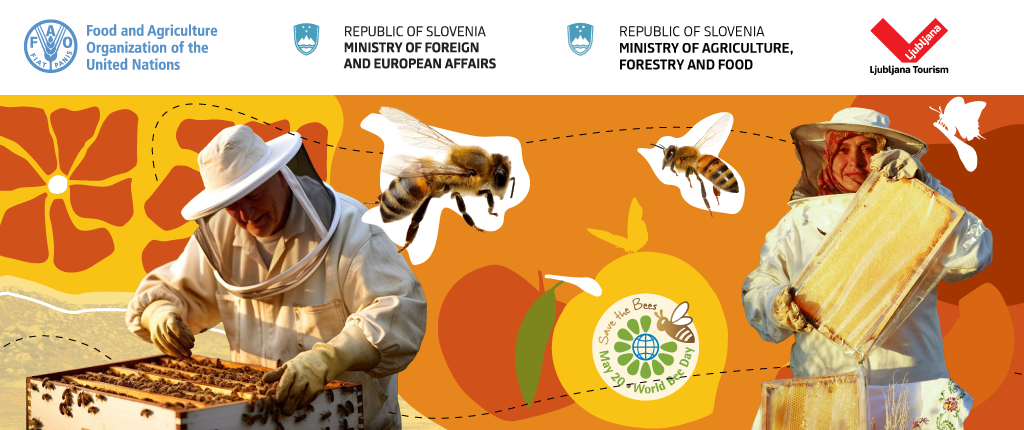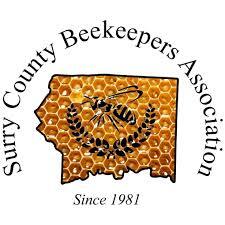Alan Harman

Environmental technician student Christine Combe checks out beehives at Niagara College’s new apiary with Dennis Edell of the Ontario Beekeepers’ Association. (Niagara College photo)
Niagara College in Ontario is introducing a one-year hands-on commercial beekeeping graduate certificate program – the first of its kind in Eastern Canada – designed to meet the significant demand for highly trained beekeepers across Canada and around the world.
The post-grad program is open to students with a diploma or degree from an accredited college or university in agribusiness, agricultural sciences, environmental science/resource studies, horticulture or natural sciences, or an acceptable combination of education and experience.
The three-semester program will see its first intake of about 30 students begin studies at the Niagara-on-the-Lake Campus next January.
With the winter start, the program will run parallel to the normal annual lifecycle of the honey bee, from the winter slumber to honey extraction, to returning the bees to their hives for overwintering.
Niagara College president Dan Patterson says the program is a shining example of one of Niagara College’s key strengths – its ability to work closely with industry to develop high-quality academic programs that respond to specific needs in the community and beyond.
An on-campus apiary – with 30 actively managed hives – serves as the centerpiece of the program.
Al Unwin, associate dean of the School of Environmental and Horticultural Studies, says the need for a skilled labor force to offset the loss of a natural ecological process is significant.
“The development of this program aligns with our overall approach to agri-food, where pollinators are an increasingly important part of a vibrant food system,” Unwin says.
“We’ve worked closely with industry to create a hands-on program that will produce graduates that are knowledgeable, highly skilled and experienced.”
The demand for skilled workers to support the pollination services industry was shown in the most recent agricultural census with Statistics Canada estimating a need for more than 3,600 commercial beekeepers by 2026.
Niagara College’s program has been in development for four years, in collaboration with the Ontario Beekeepers’ Association (OBA), representing 80% of beekeepers in the Canadian province.
It had its origins in a fishing trip by Unwin and OBA board member Dennis Edell, five or six years ago, when Edell said Unwin should look at establishing a beekeeping program at the college.
Unwin dug through Statistics Canada research and found the 2,300 commercial beekeepers now operating in Canada would have to climb to 6,300 in the next decade to meet the demand for farm pollination services.
“That was a game-changer,” Unwin told a news conference announcing the program. “I realized an institute like ours could play a vital role.”
Unwin made a program proposal that was approved by college’s board of governors and the provincial government.
OBA president Tibor Szabo says the association is particularly pleased to have partnered with Niagara College on the concept and launch of the program.
“Today’s commercial beekeeper faces many challenges both locally and globally,” Szabo says. “This is a great first step for anyone thinking of a career in beekeeping.”








